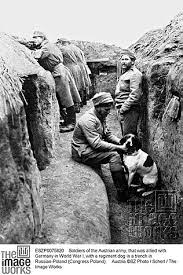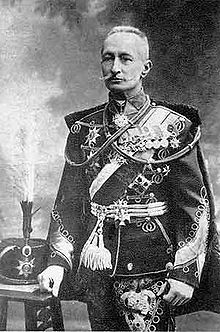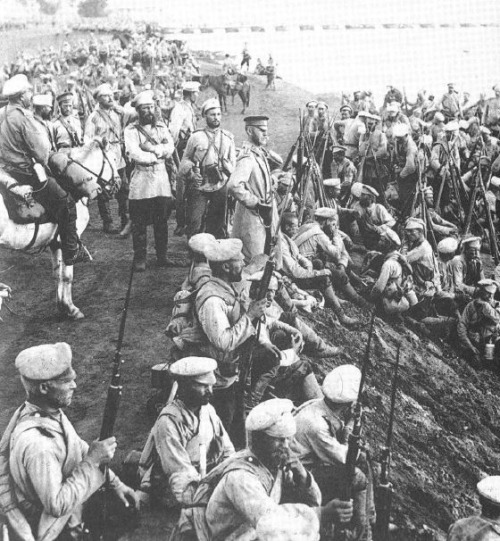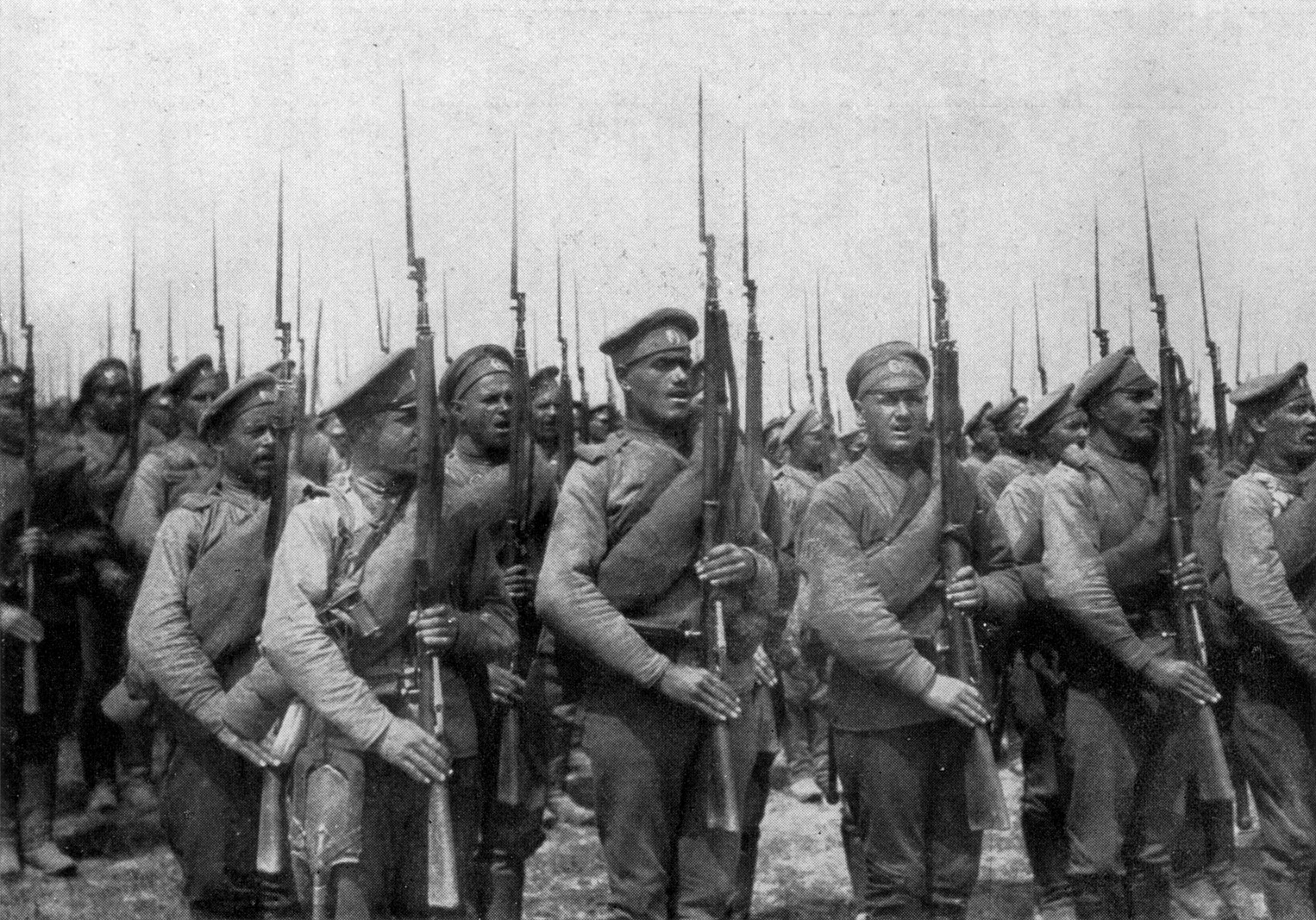Bid to Break Stalemate on the Eastern Front
Staking All on Doubtful Strategy; The Brusilov Offensive.
Special to The Great War Project
(26-29 May) For weeks a century ago, news is scarce from the Eastern Front.
The Russians have withdrawn and are tending to their losses inflicted earlier in the war.

Austrian soldiers dug in on the Eastern Front.
But now on the Eastern Front, the Russians are making preparations for a huge offensive in several directions.
It is planned and led by the Russian General Aleksei Brusilov. The thrust of this offensive is to take place in what is now southern Poland and western Ukraine.

Russian General Alexei Brusilov
General Brusilov sees opportunities where other Russian generals only see reasons to forego attack. “This infamous Russian offensive temporarily changed the momentum of the war,” writes historian Michael Neiberg.
The Russians target mostly forces of Austria-Hungary. The attack is planned to kick off in early June, a century ago.
For his offensive, he needs significant reinforcements. They are not forthcoming.
“He must use what men and guns he had. To most of his colleagues,” writes historian Alexander Watson, “[Brusilov] appeared to be setting himself up for failure.”
This is shaping up as a huge battle. Brusilov is proposing to attack “a well-fortified line over 300 kilometers long at the south end of the Eastern Front with scarcely any material advantage.”
His troops do outnumber the half-million Austrian soldiers opposing him by some 160,000. But, reports Watson, Brusilov lacks superiority in heavy artillery.
“Brusilov could not even count on surprise to carry his men through,” writes Watson. “The five Austro-Hungarian armies targeted knew months in advance that an attack was planned.” From aerial reconnaissance, the Austrians learn the Russians are digging new trenches. Frontline units observe enemy guns moving up in place “in prelude to assault.”
“By mid-May,” writes historian Watson, “the Austrian commands could accurately predict where the focus of the attack would be.”
The Austrians are aided by Russian deserters who speak of being issued wire cutters and fresh underwear. “It was understood that an assault was imminent.”
At the same time, writes historian David Stone, “Shortages of ammunition led to a reduction in the scale of the offensive.”

Russian soldiers prepare for Brusilov offensive.
To cope with these deficiencies, Brusilov plans action on four separate fronts. “Preparing four separate breakthroughs of roughly equal weight,” writes Stone, “prevented enemy intelligence from determining the key sector. There simply wasn’t one.”
Brusilov even uses disinformation transmitted over telephone lines. Radio stations are set up to transmit false messages. Thus “drawing Austro-German attention away from the true concentration of forces.”
Brusilov too “made extensive use of aerial reconnaissance,” reports Stone, “to develop a complete picture of Austrian defenses opposite his lines.”
He has some 100 aircraft at his disposal, roughly equal to that of the Austrians. He uses them in sophisticated ways to generate a complete picture of the battlefield, even as it changes from week to week.
“Brusilov employed his reconnaissance aircraft,” reports Stone, “to repeatedly photograph enemy positions in the full depth, tracing changes over time and employing oblique angles in order to better detect camouflaged positions.”

Russian soldiers in formation for Brusilov offensive.
These are sophisticated techniques, requiring commanders on each side to anticipate the eventual actions of the other.
The strategy of multiple breakthroughs “had obviously its downside,”…
…Brusilov himself acknowledges later, “in that I could not concentrate at the main point of attack the men and artillery that I could have if I had established just one strike force.”
According to Watson, “Killing and capturing enemy soldiers became an end in itself, regardless of what it might cost the Russian army in turn.”
The Russians are risking all in their embrace of Brusilov’s plan. Just days from now, a hundred years ago, they will learn whether this strategy to break the stalemate on the Eastern Front is successful.
